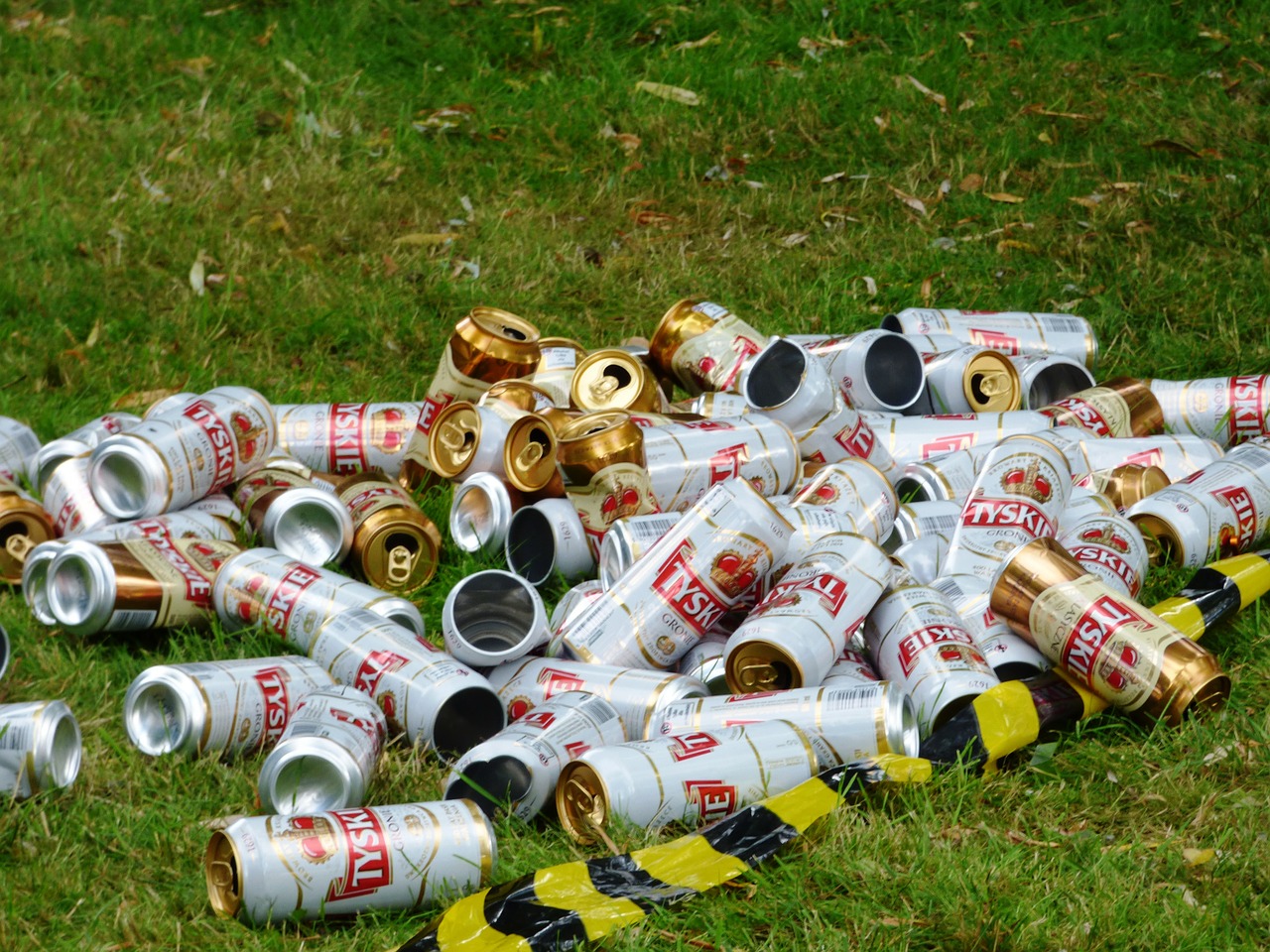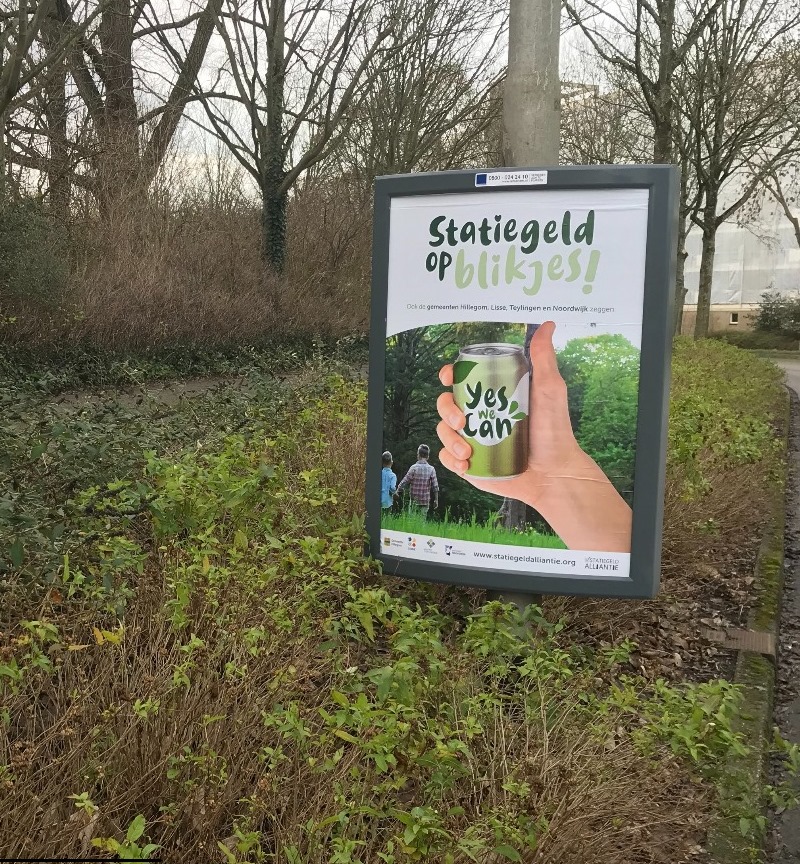
- Sustainable Planet -
- 4mins -
- 1,773 views
The Netherlands introduces deposit scheme in 2023 on aluminium cans of 15 cents
From 2023, Dutch citizens will have to pay a 15-cent deposit when buying a can of soda. The Dutch government decided to introduce the measure because the amount of litter has not decreased but actually increased.
A historic milestone in the fight against litter
The Dutch State Secretary for Infrastructure and Water Management Stientje van Veldhoven (D66) has decided in favor of a deposit on beverage cans. From 1 January 2023 there will be an effective deposit on cans. "The battle for deposits took decades and is now finally won. It is a historic milestone: within the term of one government deposit for plastic bottles and cans is decided," responded the Deposit Money Alliance (Statiegeldalliantie) pleased.
Now, the Netherlands is just a small country but this really is a big deal. Why? Because deposit schemes have proven over and over again that they are highly effective in preventing litter and reusing our finite resources.

150 million cans – or 25 Olympic swimming pools – end up in the environment every year
The measure goes into effect in two years so that companies can prepare for it properly. They will then receive more waste back and must be able to process it properly. The amount of 15 euro cents per can is the same as the deposit on small plastic bottles, which will be introduced in July 2021.
With this decision, Van Veldhoven wants to prevent litter and ensure that more cans can be recycled.
"About 150 million cans – or 25 Olympic swimming pools – end up in the environment every year. Animals also injure themselves on top of that. With a deposit, that will soon be a thing of the past," she says.
Last year, Van Veldhoven threatened to introduce a deposit if the number of cans left behind did not fall by 70 percent in the course of 2021, compared to the 2016/2017 average.
The latest figures now show that in 2020 the number of cans in the environment increased by 27 percent and therefore there is no downward trend. Because with this the agreed decrease appeared unachievable, the State Secretary decided to announce the measure already.
The hospitality industry and small sales outlets do not have to collect cans. That is up to the supermarkets and producers.

Together with twenty partners, Recycling Network Benelux founded the Deposit Money Alliance in late 2017 to change that. The alliance grew at lightning speed into a large enthusiastic movement. It already counts 1,115 Dutch and Belgian municipalities, organizations and companies. The campaign Deposit Money, Yes We Can received extensive media attention and aroused great enthusiasm among people, associations – and politicians. Everyone was talking about deposits and everyone wanted it to be introduced quickly. Now that the decision has been made, it is important that the deposit system be consumer-friendly so that consumers can easily return their empty cans to the supermarkets. Source: StatieGeldAlliantie.org
Positive effect on Belgium too
The Dutch Rutte III cabinet approved the deposit decision for small plastic bottles in April 2020, and now, less than a year later, also the deposit on cans. Deposits on plastic bottles will become effective within five months. Deposits on cans next year. In Belgium, the Brussels region, the Walloon region and the federal government foresee deposits in their coalition agreements. "The rollout of deposits in the Netherlands will give the deposit issue in Belgium a big boost," predicts the Deposit Money Alliance.
Deposit schemes have proven to be highly effective
Return schemes have already proven worldwide to be highly effective. Depending on the type of system, return rates seem to somewhere between 50% and 95%.
Some examples:
- The state of South Australia charges a refundable deposit of AUD 10 cents per drinks carton, can or bottle (only containers marked as eligible for refund; does not include wine & spirits bottles, milk cartons, or concentrated/and or vegetable juice intended to be diluted before consumption). This has been in place since 1977. The overall return rate is 79.9%
- In Denmark, the first national deposit-return system was introduced in 1922. Denmark introduced a new legislation in 2002 with a deposit scheme that covered aluminium cans. The deposit system operator is Dansk Retursystem A/S, a private non-profit organization. In 2019, they reported that their system achieved a total return rate of 92%.
- In Germany, the deposit legislation covers plastic, aluminum, and glass containers for water, beer, mixed drinks containing beer, carbonated/non-carbonated soft drinks, and mixed alcoholic drinks. The system has successfully encouraged the recycling of Einwegpfand containers. Between 97 and 99% of non-reusable bottles are returned, and recycling rates for cans are around 99%
Here you can find an extensive overview of container deposit legislation from around the globe.
Merijn Tinga proves that ” I make a change, we make the difference”
Besides bringing your own drinks in reusable cups, you can make make a difference too by actively campaigning to influence local and national policymakers. To give you an example, in the Netherlands, Merijn Tinga, better known as The Plastic Soup Surfer, started a movement and got hundreds of thousands of concerned citizens involved. His movement, which was active in influencing the general public, retailers, producers, and policymakers had a huge influence on the decision of the Dutch government to introduce a deposit on small plastic bottles which was approved in 2020.
You can learn all about his amazing work.

